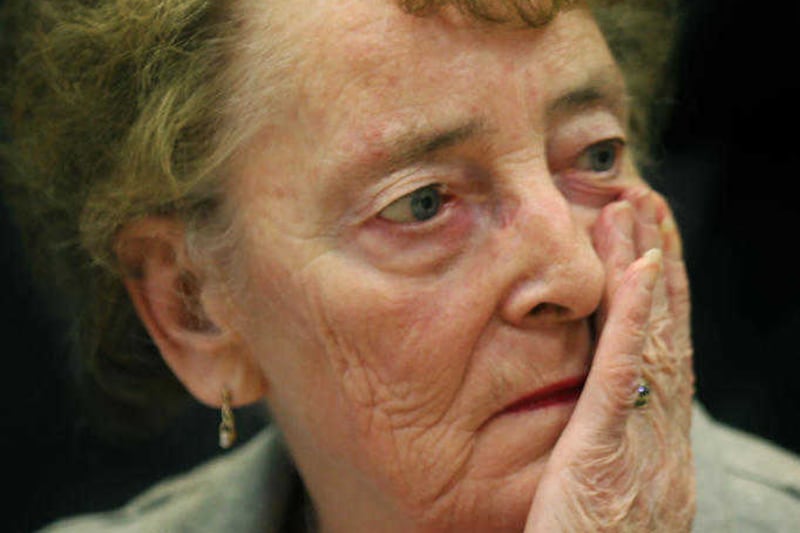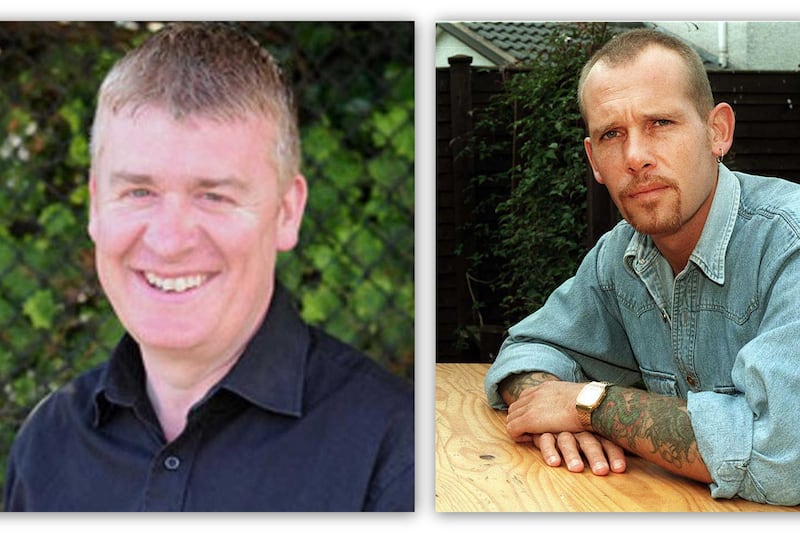Suspected RUC Special Branch agent and UVF serial killer Robin ‘The Jackal’ Jackson may have been involved in the murder of more than 100 people, a former member of the Glenanne Gang believes.
John Weir, a former RUC sergeant, also said that Jackson was involved in a gun attack that claimed the lives of two Catholic men hours after taking part in the Miami Showband massacre.
The UVF commander, who died in May 1998, is believed to have been present when gunmen opened fire on band members after their minibus was stopped at a bogus UDR checkpoint near Banbridge on July 31, 1975.
Three members of the popular band, including lead singer Fran O’Toole, were killed when they were sprayed with automatic gunfire.
Two UVF men, Wesley Sommerville and Harris Boyle, who were both members of the UDR, also died as a bomb they were attempting to place on the bus exploded.
Somerville and Jackson worked closely together and both are believed to have taken part in the murder of trade union official Patrick Campbell in Banbridge in October 1973.
Jackson and Boyle were also close and just days before the Miami attack were both present when Jackson shot dead former Mid-Ulster UVF commander Billy Hanna.
A day after the Miami attack pensioner Joseph Toland (78) was shot dead during a gun attack on the minibus he was travelling in near the village of Gilford in Co Down.
Another man, Jimmy Marks (42) - who had been driving the minibus - died from his injuries in January 1976.
Three female passengers were also seriously injured.
The group was travelling from a bingo session in Banbridge back to Bleary in Co Armagh when the gunmen struck.
In 2015 a Historical Enquiries Team report revealed that a riffle used in the attack was also linked to the IRA killing of two UDR members.
A second gun was also found in the possession of two IRA members in Lurgan in 1979.
Within hours of the attack the RUC were focussing on the theory that the IRA had carried out the Gilford ambush in revenge for the Miami killings.
Republicans later denied any involvement.
Investigators believed that republicans may have mistaken the vehicle for a police minibus which was taking officers from Gilford to Portadown.
However, the former Glenanne Gang member has insisted the attack was carried out by Jackson.
“There was a minibus at Gilford shot up, bingo players coming back from bingo in Gilford to Portadown, it was shot up from high ground on the road,” Weir said.
“HET say it was a republican job and they have proof of it - it was not.
“It was a Robin Jackson job with Glenanne, the day after Miami was done.”
He believes it would have been too risky for republicans to run past a minibus full of armed police officers.
“Do you mean to say that the IRA or INLA would fire from high ground, leave the getaway car, a mini car, parked in a laneway right on the opposite side of the road?
“So after they shoot the thing up, armed policemen, they were going to run across the road to the getaway car and get away.”
Mr Weir believes the weapons used in the attack were deliberately placed in a republican arms dumps in a bid to point the finger at them.
“I visited the scene of it, we knew it was a loyalist job when we visited the scene,” he said.
“So why did HET say they’d proof it was a republican job? It wasn’t.
“How come the car wasn’t burnt out anywhere, a mini car.
“Simply because the car you’ll find belonged to somebody, he dropped the boys and drove home and kept the car.”
Some believe the owner of the car was a policeman.
Mr Weir said that Jackson had a reputation for being hands on during murders and again confirmed the long held suspicion that he was a Special Branch agent.
“He was probably the best operator during the Troubles, I think anybody would tell you that,” he said.
“But he used to give himself away a bit who he was working for because he used to go over the top a bit to shrug it off.
“We used to talk, I used to talk to high rankers, RUC, and we’d talk about Robin, everyone, just what everyone would say, ah, he has some deal with Special Branch there.
“As long as he does what he is told that nobody else is allowed to touch him or bother him as long as he tows the line with the Special Branch - that they have an agreement between them.”
Weir has little doubt that Jackson’s murder tally ran to three figures.
“I would say over 100,” he said.
“HET say less than what I say, (it’s) far more than what I say, far more.
“Well everything that he would have been on he would have been the man who pulled the trigger.
“Because he was that sort of man, also, he didn’t stand in the background of things.
“So what better man could you have working undercover for you?”
He also claimed Jackson instilled fear in people.
“You see what people maybe don’t understand, I saw inside, even Shankill Butchers, they were on their knees to Robin,” he said.
“That’s the fear people had of him.
“That’s why he had such power.
“He actually created fear.
“He was not a psychopath he was not a madman, he was not a crazy man.
“It was all a big act to keep his cover, one, who he was working for.
“Secondly, to leave people so scared of him that everybody trusted him.
“But it was all a game, it was just a game.”
However, he also said that despite his reputation Jackson refused to kill Glenanne Gang member William ‘Billy’ McCaughey before he broke and gave police details of the group’s activities.
“It was the one thing that surprised all of us,” he said.
“I think that somehow he liked McCaughey.
“He told us that he just felt that McCaughey would never do harm and never talk, that he was sound.
“He got that wrong.
He said Jackson’s Special Branch handlers also wanted him to kill McCaughey while he was in prison.
“I think he was maybe told to get rid of Billy but maybe he wouldn’t do it.
“He told me at a later stage that they wanted him to do (kill) McCaughey but that he wasn’t going to do it, he was refusing.
“He did tell me that, that’s whenever we were inside.
“They wanted him done on the inside.
“I presume it would be Special Branch, he told me RUC, he said the police, but it would be Special Branch.”
He said Special Branch were “afraid” after McCaughey became “unstable” and confessed to police.
“There was a whole lot more to him and things he knew which I maybe to this day don’t know,” he said.
Weir also claimed that both Jackson and McCaughey were responsible for killing Catholic RUC man Sergeant Joseph Campbell in Cushendall in February 1977.








